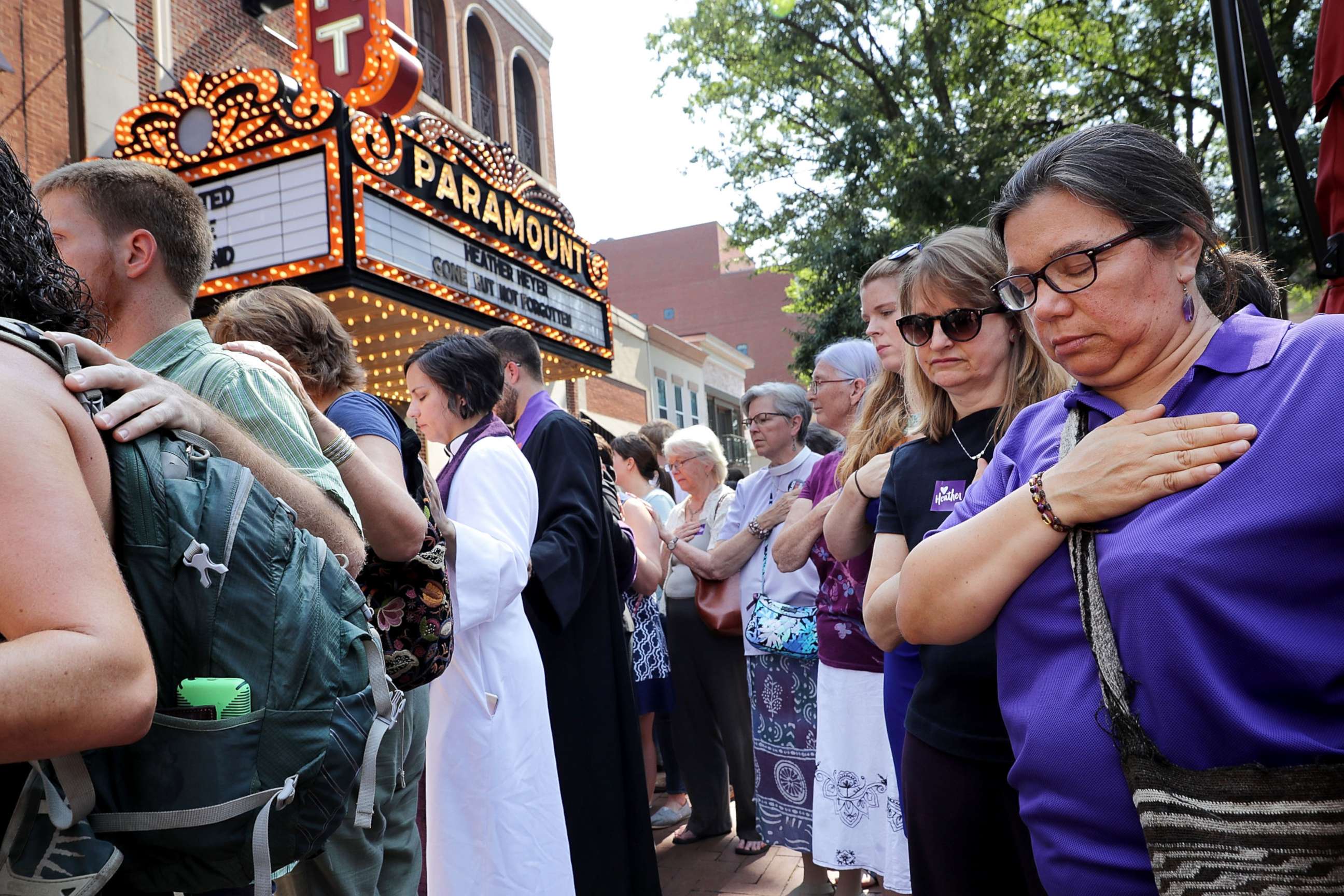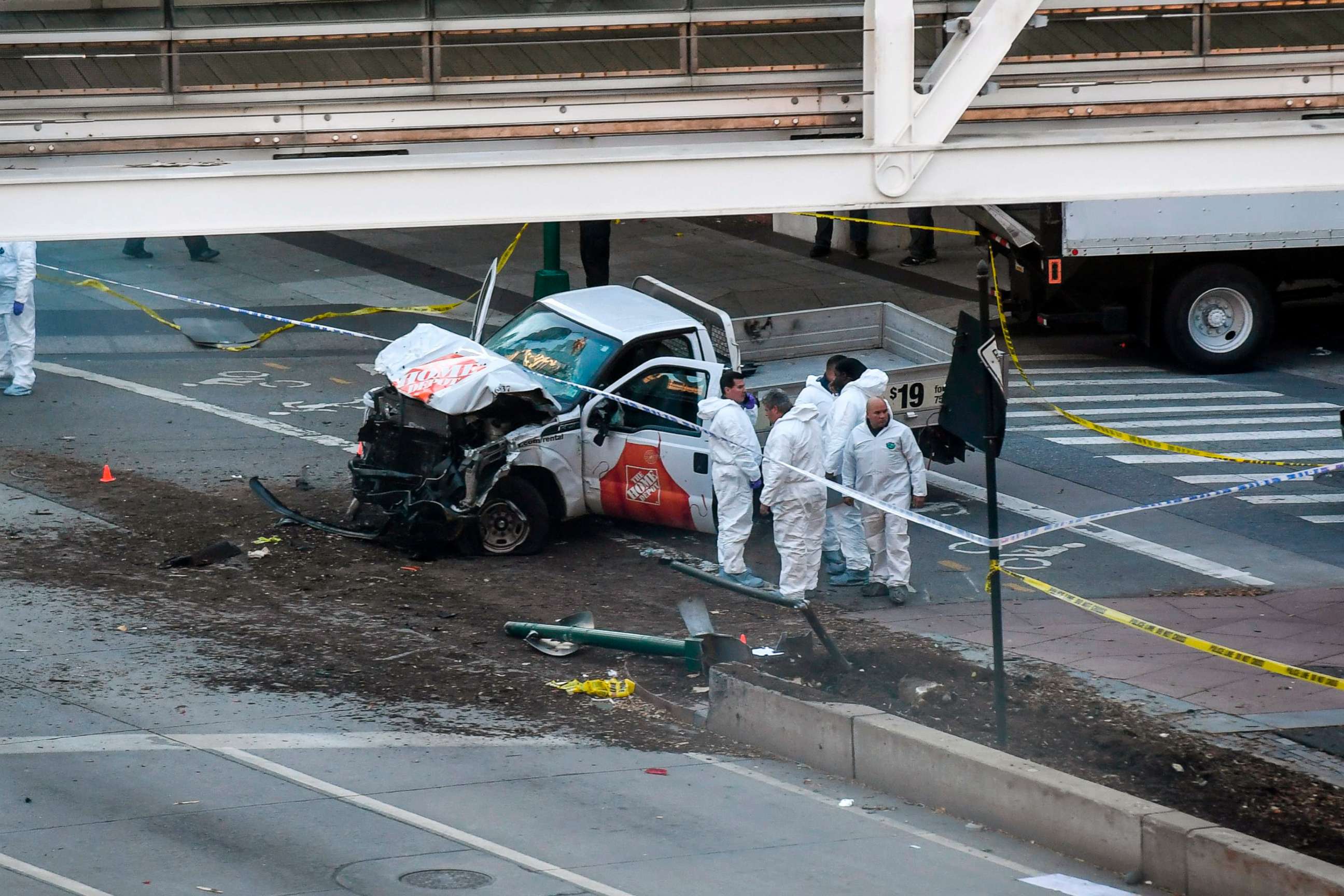Majority of 2017 extremist murders in US were committed by right-wingers: Report

— -- A new report states that right-wing extremists were responsible for the majority of extremist murders in the U.S. in 2017.
Jewish group the Anti-Defamation League compiled the report, noting how the murders committed by white supremacists included some linked to the "alt-right" -- shorthand for the "alternative right" -- which it states “expanded its operations in 2017 from the internet into the physical world.”
The report includes white supremacists and individuals who identify with the alt-right movement as part of its "right-wing" classification.
“Energized by the 2016 election and the media attention given to the movement, alt-right adherents … increasingly involved themselves in the real world as well as the virtual realm,” the report states.
Of the 34 murders in 2017 that the ADL examined in the report, 20 were committed by people who have ties to far-right extremism, including white supremacists.
There were a number of other high-profile fatal incidents, but the parameters of the report mean that some of the most deadly incidents from 2017 were not included.

For instance, the Las Vegas country music festival shooting and the church shooting in Sutherland Springs, Texas, were not included in the report because there was not confirmed evidence of a connection to any specific extremist group or ideology in either of those incidents. The report notes that extremist-related killings only make up “a small fraction” of the number of homicides in the U.S. in a given year.
John Cohen, a former counterterrorism coordinator for the Department of Homeland Security and current ABC News consultant, said that the report is valuable but needs to be put in context.
"In one respect, the ADL report confirms what law enforcement leaders have known for months -- that when it comes to ideologically motivated violence, the primary threat comes not from immigrants but from individuals who reside legally or were born here in the United States," Cohen said. "On another respect, the report understates the threat facing the U.S. in that it doesn't include non-ideologically motivated mass casualty attacks such as those that occurred in Las Vegas and Sutherland Springs."
Among the high-profile homicides that were included are two vehicular-based attacks: the attack by a white supremacist in Charlottesville, Virginia, at the “Unite the Right” protest that left counter-protester Heather Heyer dead, and the truck-ramming incident on a bike path in New York City that left eight people dead. Sayfullo Saipov, an Uzbek national who police said was inspired by ISIS, has been charged in the New York case. The bike path attack was the single deadliest extremist incident in 2017, the report states. The report also notes that 2017 was the second year in a row with deadly attacks by black nationalists.
In spite of the deadliest death toll stemming from an incident involving an Islamic extremist, it still marks a significantly smaller portion of the extremist death count from the previous year, since 2016 included the Pulse nightclub attack, which killed 49 people and was carried out by a self-professed ISIS supporter.

By contrast, the 20 far-right extremist homicides mark a dramatic uptick from the year prior, with 59 percent of this year’s total being attributed to that category as opposed to only 20 percent in 2016. This doesn’t surprise experts at the ADL, however.
“Increased real-world activity by the alt-right could result in more alliances or crossover between the alt-right supporters and other elements of the white supremacist movement,” said Oren Segal, the director of the ADL’s Center on Extremism. “Violence is very widely accepted, ideologically and culturally, within the white supremacist movement and therefore any increase in real-world activity by the alt-right could also result in more real-world violence by its adherents.”
Heidi Beirich, the director of the Intelligence Project at the Southern Poverty Law Center (SPLC), said that the ADL report is "reinforcing a broad trend: that right-wing extremism remains very deadly."
She cited a 2015 SPLC report which stated that a right-wing terrorist attack had either been attempted or succeeded every 34 days between 2010 and 2015.
Right-wing extremism is "an important issue, one that has been largely ignored ... and shouldn't be because it's deadly just like all forms of terrorism," Beirich said.
"White supremacy is indigenous [in the U.S.] It's been here since the founding of our country," she said, contrasting it to foreign extremism like the attackers responsible for the Sept. 11 attacks.
"If you don't keep your eye on that ball, that's the one that's not going anywhere unfortunately," Beirich said.



